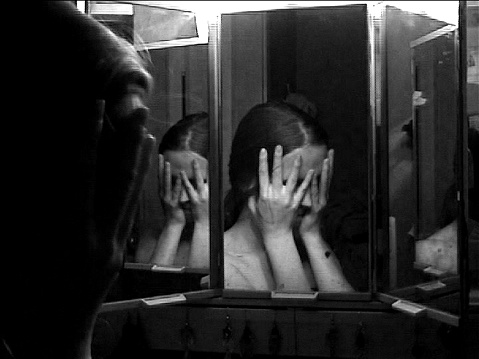I remember that thrown-cast day of fifteen so clearly. There I was, sitting on the floor while Amma grabbed and pulled my unruly curls that refused to listen while lamenting about the “spreading disease”. Loving another girl? It is unscientific, she says, and unwanted, just like a disease. I looked at myself in the kannaadi (mirror) that I held in my hands and there she was, a girl, two plaited braids down each shoulder, oiled to perfection, not a single frizz in sight. I stare at the girl no longer familiar.
For most of my life, that is how I lived. As a daughter, a sister, a grand-daughter, and then during those rare moments of liberation as me. How I cherished those precious moments, but how, how it terrified me. I was parading unknown territories, alone. How I longed for a companion, for someone to look me in the eyes and say, Kanna (dear), there is nothing wrong with the girl nestled in your breast, and then hold her hands and lead her out of the dark crevices she called ‘home’.
Later that day, I was sitting on the toilet seat of our common washroom, fistfuls of my hair in my left hand and a scissor in my right, making crossroads unfamiliar. As clutches of hair fell down onto the bathroom floor, I imagined a tree ridding itself of its branches outgrown. Love, unscientific? I thought. Since when has love become a matter of science? Just because science was incapable of understanding the vast breadths of the ocean that flowed between us, did that mean we were wrong? I thought beyond our bodies tangled, I remembered your eyes, so kind and gracious, and I wondered how anyone could look at that and call it a disease. More clutches of hair falling to the ground.
I still walk this earth as two, and I still feel the mold of ‘wrong’ spreading across my body as I think of her. But this time, there’s a voice that screams louder and louder and fights back. I think I might finally recognize who I am and that there’s nothing wrong with the girl in my kannaadi.
bento4d situs toto rtp slot situs hk bento4d bento4d situs toto toto togel toto slot toto slot link slot gacor slot thailand slot gacor

